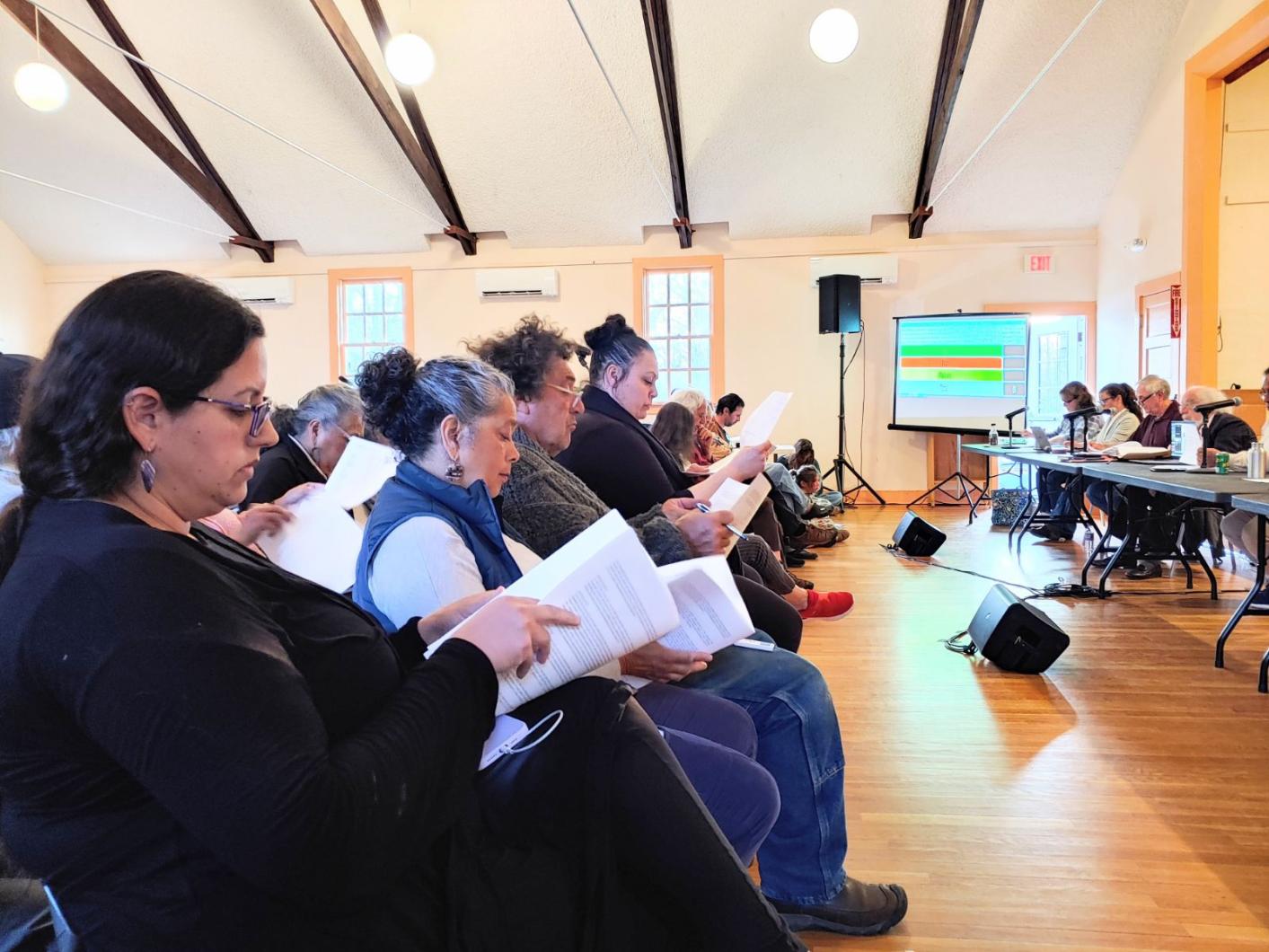Aquinnah residents narrowly voted down the town’s share of the Martha’s Vineyard Regional High School operating budget at annual town meeting Tuesday, casting the third and deciding vote against the school financial plan.
Aquinnah voters rejected the budget by a vote of 50 to 47 after about an hour of discussion, forcing the regional school committee to come up with a new budget to bring back to the towns.
The budget became a contentious issue this town meeting season after West Tisbury and Chilmark voted against their portions in protest of the high school’s continued legal spending on a lawsuit over artificial turf field plans.
The school budget requires four of the six Island towns to vote in favor in order to be adopted. If Aquinnah had adopted the budget, it would have passed Islandwide.
The high school has been pursuing an artificial turf field for years as part of a revamp of the school’s athletic facility.
The project, which also includes a new track and renovating several other grass fields, was approved by the Martha’s Vineyard Commission in 2021, but was later rejected by the Oak Bluffs planning board due to concerns about chemicals from the field potentially harming the Island’s water quality.
The school then sued the town board, claiming the project was exempt from local zoning under state law.
Continued legal spending on the suit riled some voters in West Tisbury and Chilmark, but in the weeks between those town meetings and Aquinnah’s, the school had taken steps to potentially wind the lawsuit down. Last week, the regional high school committee said it was seeking to settle the legal appeal and voted to not use any of the 2024 legal budget to fund the case.
That didn’t seem to assure some voters in Aquinnah Tuesday.
David Vanderhoop made the motion to amend the town’s portion of the budget from $432,432 to zero.
“If we bring this down to zero, it means you have to work harder,” he said.
Meg Bodner said she believed that the school committee should be focused on education, not litigation.
Schools superintendent Richie Smith said that rejecting the budget would have an effect on education.
“It will impact kids,” he said. “I need folks to understand that.”
On town meeting floor, Mr. Smith said the school would notify the state department of education on Wednesday that the district did not have an operating budget and would need to run on monthly installments of 1/12 the previous year's budget.
School officials have said that if the budget failed, the school would be unable to extend contracts on June 1 to teachers and other employees, potentially affecting not just the high school but other shared programs for students with special needs.
High school principal Sara Dingledy warned voters that this could impact two Brazilian instructors who cannot stay in the U.S. during a lapse in employment, and others worried this could hurt the reputation of the school, making it even harder to hire employees.
“There’s a human side to this,” Mr. Smith said.
In other articles, town meeting easily passed $250,000 for emergency repairs to town buildings. Town administrator Jeffrey Madison previously said the police station has a hole in one of its exterior walls, a raccoon is living in the fire station and town hall needs a new front door and windows.
Voters also approved a new, more restrictive energy code to make all new construction in town more energy efficient. Aquinnah is part of a 10-town pilot program to eliminate fossil fuels in all new construction and the state’s Department of Energy Resources had requested all participants to adopt the new measures.
The town adopted raising the short-term rental tax from 4 per cent to the state maximum of 6 per cent. Aquinnah now joins Oak Bluffs, Tisbury and West Tisbury in charging 6 per cent on the rentals.









Comments (27)
Comments
Comment policy »